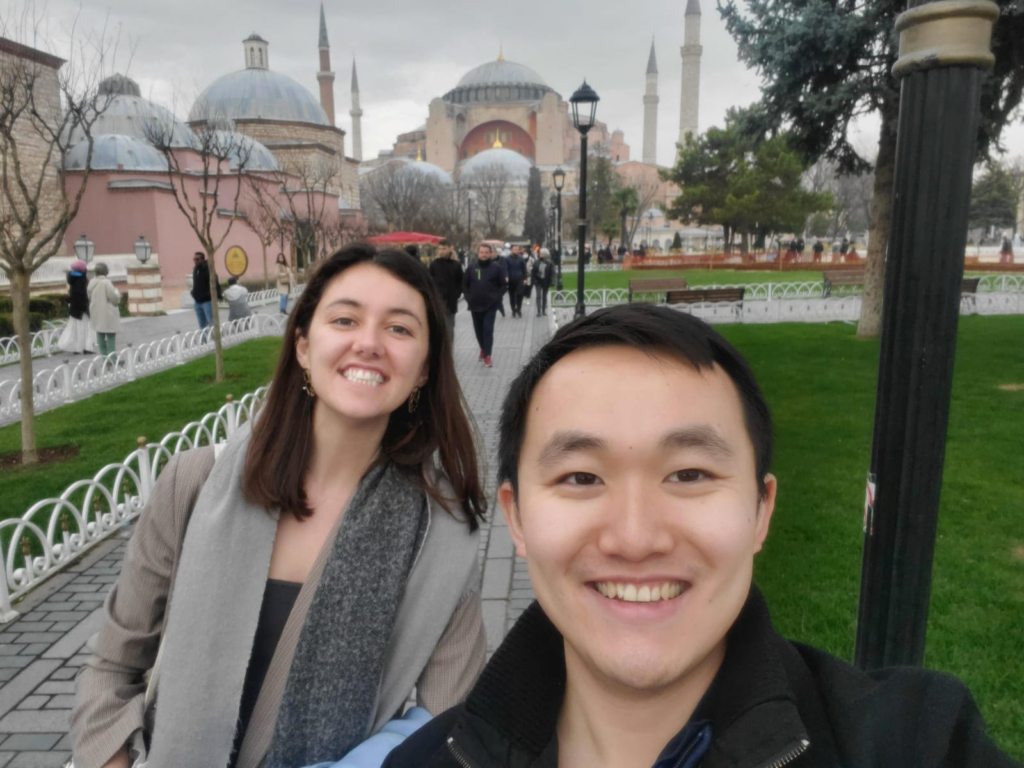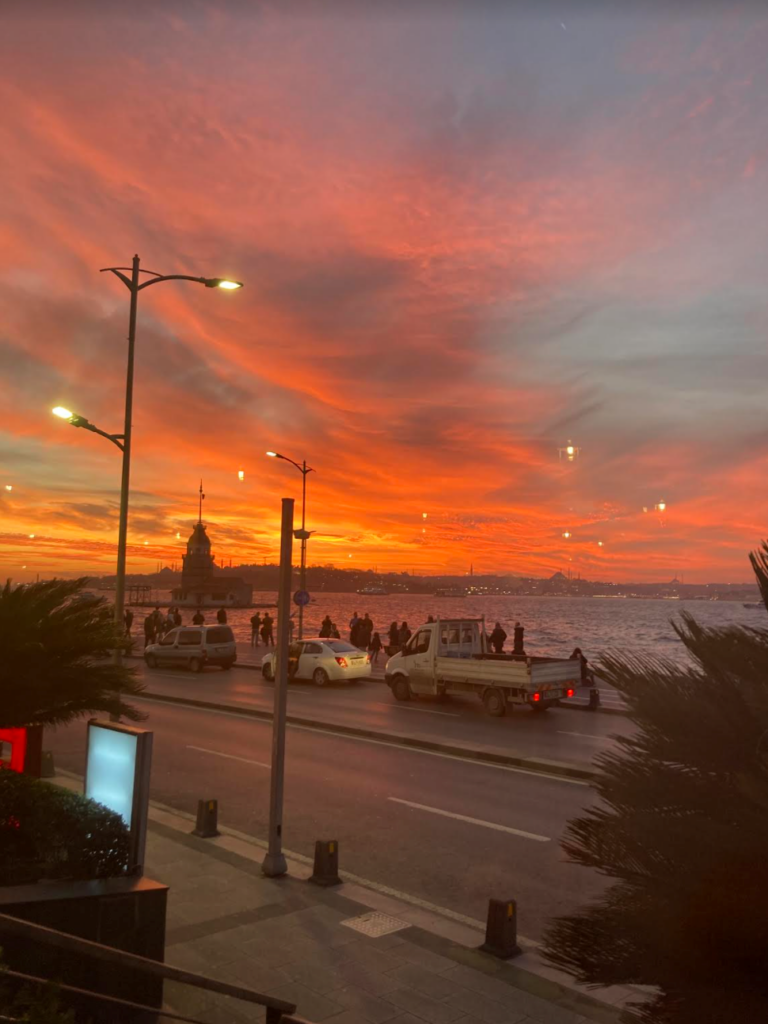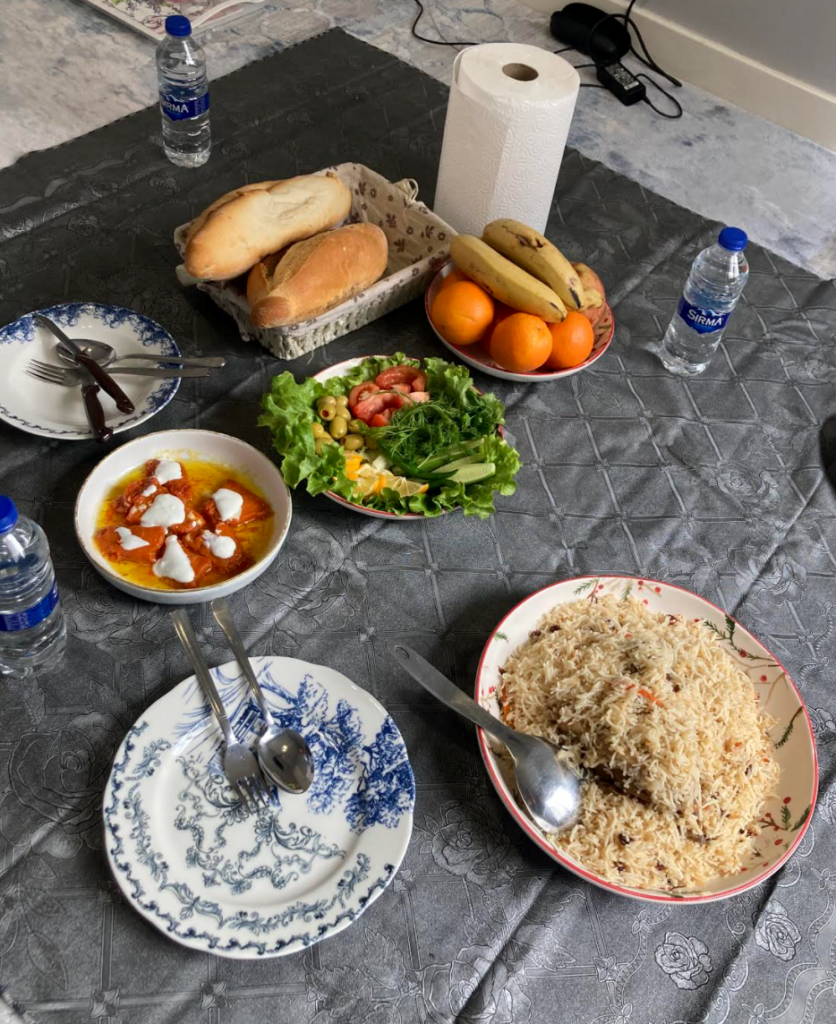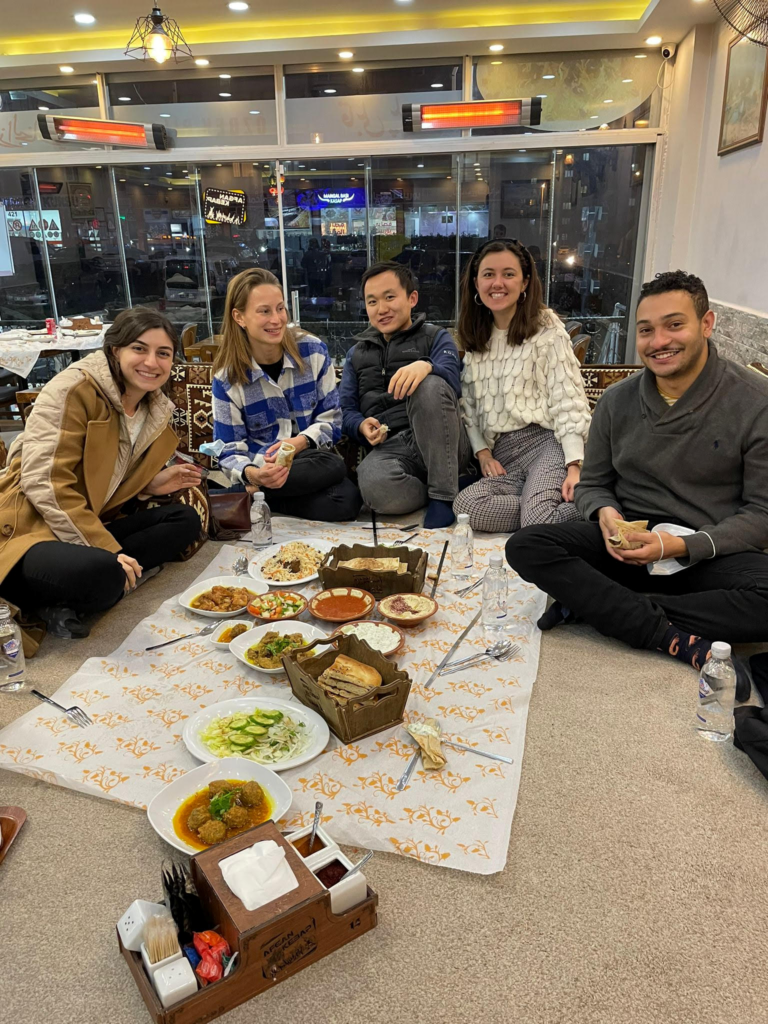By Eric Xu ’23 and Annie Whitney ’24
Over the J-term, the three of us–Shaza Loutfi ‘22, Eric Xu ‘23, and Annie Whitney ‘24–worked in Istanbul, Turkey, with Mina’s List to help Afghan women with ties to the former government and their families apply for refugee resettlement.
Founded in 2014, Mina’s List “seeks to build just and peaceful societies by advancing women’s political leadership and participation globally.” The organization has run training programs for women political leaders in Afghanistan since its founding and often partnered with local civil society organizations to promote a larger role for women in Afghan democracy.
In response to the Taliban’s takeover of Afghanistan in August 2021, Mina’s List pivoted to an emergency response and resettlement operation. Following negotiations between Mina’s List, the U.S. State Department, and the Canadian government, Canada extended invitations to 33 women and their families–altogether about 220 individuals–whom the Taliban targeted for their work as members of the former parliament or with ministries, Western governments, or international organizations.
Although asylum applications often take months to complete, the Canadian government asked for applications to be returned in 14 days. We were on the ground for this application period to see the families through the process, from receiving their invitations from the government to submission.
We had different roles–Shaza, who lives in Turkey, was the team’s point person, and Annie and Eric were part of this team, which consisted of lawyers and law students from half a dozen countries, and assigned specific families’ cases.
Shaza and the supervising attorney from Mina’s List, Tanya Henderson, who is also the founder of the organization, kicked off the project by hosting a training covering the Canadian resettlement process and the principle of “rebel lawyering”–or working in solidarity with clients rather than over them–which guided our work. Then, we hit the ground running and headed to families’ homes on the outskirts of Istanbul.
After meeting the women and establishing trust with them and their families–which meant expressing our solidarity, promising confidentiality, and, often, overcoming steep language barriers–we got to work: cross-checking demographic information, ensuring accurate and complete life histories, and drafting asylum declarations reflecting their harrowing stories of political and gender-based persecution in Afghanistan.
Emergency response work is a far cry from office work. In fact, we did not have an office at all. We worked on hotel bedroom floors in blue jeans–or pajamas, when we stayed up late to meet deadlines–and sustained ourselves on kepap (in Turkish, words cannot end with “b”–so “kebab” is “kebap”). Wifi was unreliable and printers malfunctioned, which posed a serious challenge given that one family’s application could require upwards of three dozen signature pages.
Asylum applications require proof of a well-founded fear of persecution. In practical terms, this means asking people to provide evidence of the worst things that have ever happened to them. In the flurry of fleeing Afghanistan, many families were unable to bring their computers, identification documents, or proof of threats, and others decided to destroy such evidence to erase the paper trails of their former work.
In the absence of these documents, we relied on verbal testimony. These kinds of conversations put people at risk of retraumatization, and we were cognizant of the need to provide families with space to recover from the recounting of their experiences, which included bomb attacks, death threats, and stalking of children. We also recognized the toll that secondhand trauma took on ourselves. Our nightly debriefs were critical to keeping up morale and helping one another through a stressful two-week sprint.
Even in the context of sharing their darkest moments with us, the women and families we worked with were exceedingly warm and friendly. They opened their homes to us, fed us biryani feasts, provided more tea refills than we could drink, and shared with us their stories of shattering glass ceilings as some of the first women to work in Afghan politics. Eric received a pakol hat from one of the women–as she recounted, the pakol is a wool hat worn throughout Afghanistan and popularized by Ahmad Shah Massoud, the prominent Afghan anti-Taliban freedom fighter.
Though all the families we met were acutely pained by the loss of their homeland, they remain hopeful that Afghanistan will one day restore its democracy and see female leadership again. The women treated us like their own children and grandchildren; some of us made promises to visit them in Canada.
Each of us have a keen interest in immigration law and family histories of immigration that brought us to this project. Our practical experiences will inform our work going forward as we pursue our interest areas—Annie in refugee law, Eric in appellate advocacy, and Shaza in international human rights law. The humanity we experienced and the relationships we built color our studies as we return to the classroom.
It is special and scary to stand with someone at a vulnerable moment in their life. We were honored to have the chance to work with these glass-shattering women and their families on their journeys to their new homes. We wish them safety and happiness in Canada.




Tags: Class of 2022, Class of 2023, Class of 2024
Contact Office of Clinical and Pro Bono Programs
Website:
hls.harvard.edu/clinics
Email:
clinical@law.harvard.edu